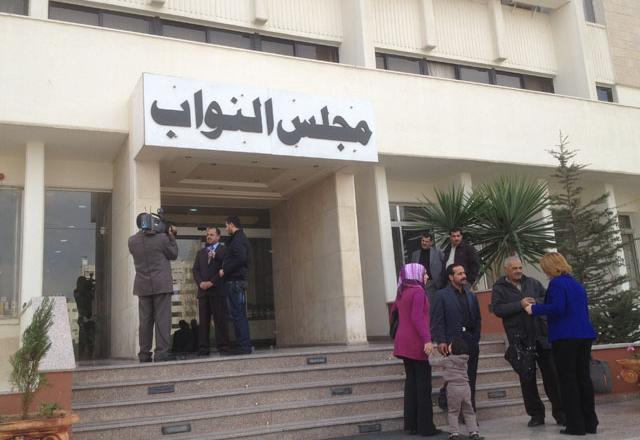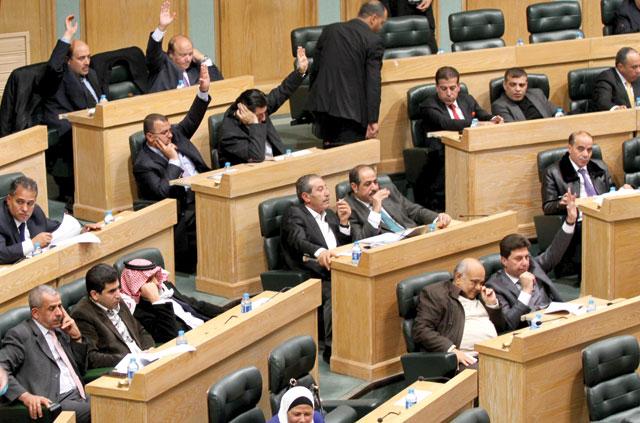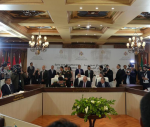You are here
House panel lowers oil price assumption to $60 a barrel in budget bill
By Omar Obeidat - Feb 14,2015 - Last updated at Feb 14,2015

AMMAN – The Lower House Financial Committee disagreed with the government over the assumption related to the base price of crude oil in the draft 2015 state budget law, lowering it from $100 a barrel to $60 a barrel.
In its report of recommendations referred to the Lower House over the weekend, the committee said its decision to adopt $60 as the base price per barrel was taken based upon forecasts by OPEC and oil futures markets that prices will continue to hover around $50 a barrel this year.
The panel said the 40 per cent drop in global oil prices would reduce the Kingdom’s oil bill by nearly $2 billion, in addition to its positive impact on the current account deficit, consumers and the country’s foreign reserves.
However, a $1 drop in oil prices reduces tax revenues by $5.7 million, or JD4 million, a year, the committee explained, hence the assumption of $60 a barrel in this year’s budget would result in a JD161 million drop in revenues.
The fall in international oil prices will also save the budget JD180 million that had been allocated as cash payments in compensation for lifting fuel subsidies.
The committee prepared 36 recommendations on the draft 2015 state budget law and the budget bill for independent public agencies after more than two months of discussing them with stakeholders.
A copy of the report was made available to The Jordan Times Saturday.
Among the recommendations is setting up a JD100 million emergency fund for the army and security apparatuses that will be financed by the projected surplus in revenues.
The panel also recommended that the losses of the state-owned National Electric Power Company be reduced by JD276.5 million — from the projected JD780 million to JD503.3 million — as a result of lower production costs due to falling oil prices.
In addition, the committee urged decision makers to work with donor countries and organisations to cancel part of Jordan’s debts due to the burden of hosting thousands of Syrian refugees and the Kingdom’s anti-terror efforts.
The panel also called on the government to prepare an executive plan for paying external and internal debts that should be included in the 10-year economic blueprint the government is scheduled to finalise soon.
The panel’s report recommended reforming the subsidy system so that it target people and not goods.
It also called on the government to address financial waste in the budget through tangible procedures, proposing that the first measure should be withdrawing government cars from senior officials and giving them transportation allowances instead.
The committee said the government should take serious and immediate measures to develop governorates and to increase the share of renewable energy in power production to reach 20 per cent by the end of 2018.
Capital spending should focus on the quality of the projects and not the size, in order to stimulate economic growth and create more jobs for Jordanians, the panel recommended.
Deputies are expected to start deliberations over the budget bill this week.
Related Articles
The Lower House will begin deliberating the 2015 draft state budget law next Sunday.
The continuing slide in oil prices may force budget planners to change key assumptions in next year’s government spending bill, which is currently under debate at the Lower House Finance Committee.
Deputies are expected to start deliberations over the draft 2015 state budget law next week, the head of the Lower House Financial Committee, Yousef Qorneh, said Wednesday.

















